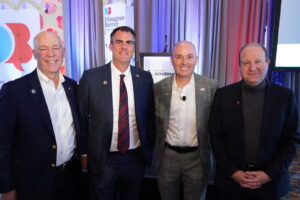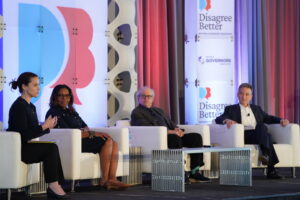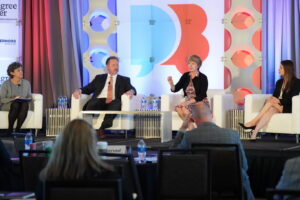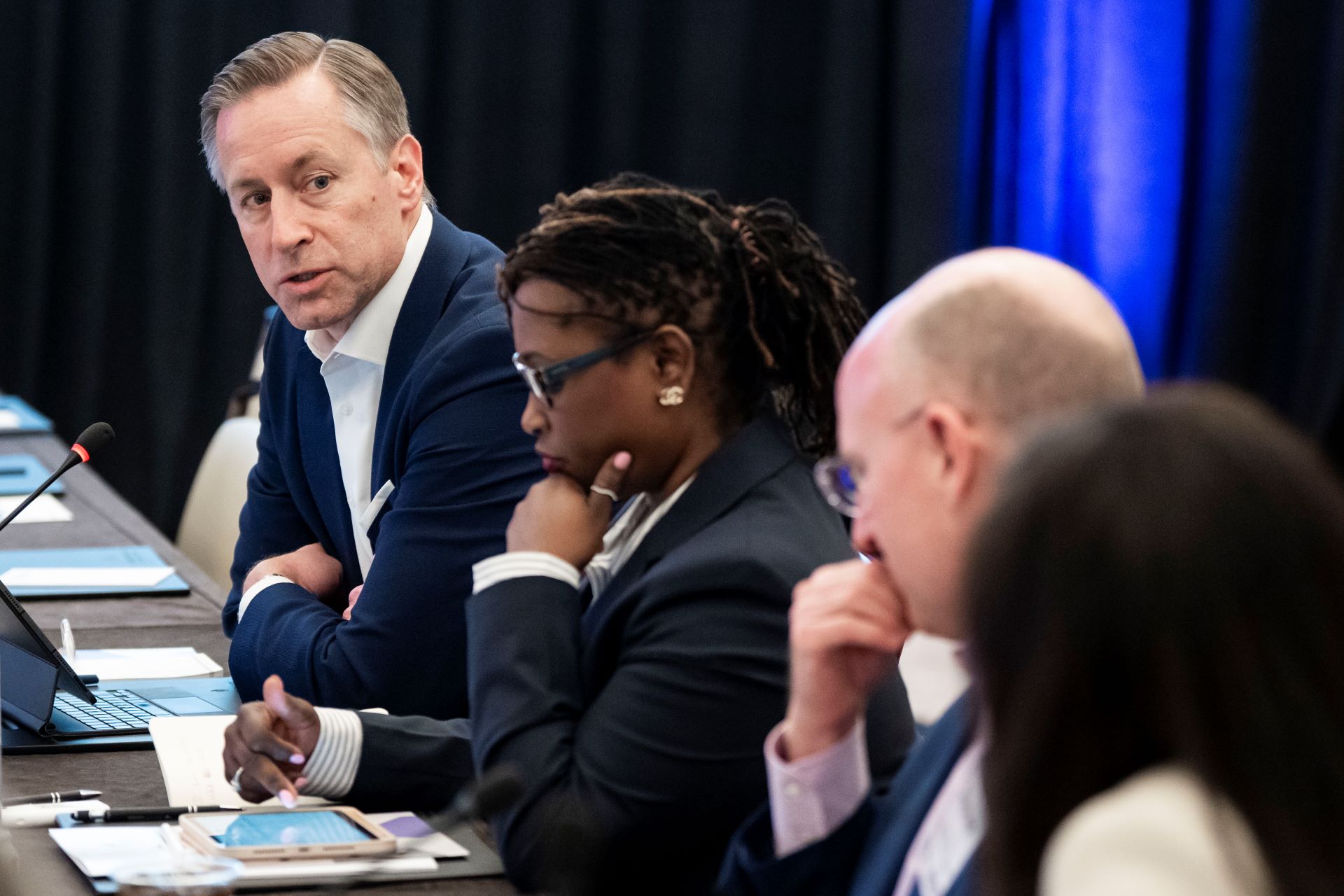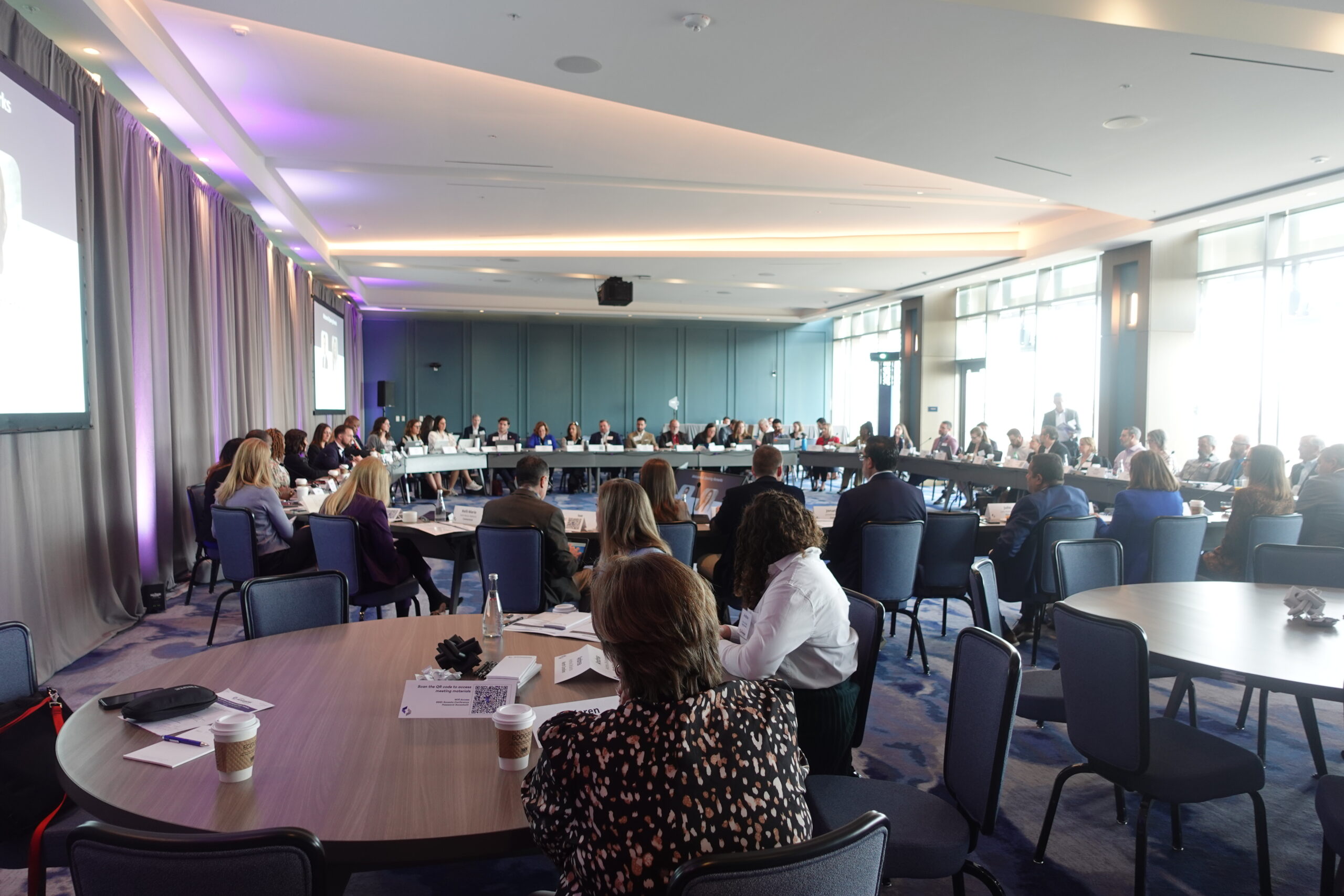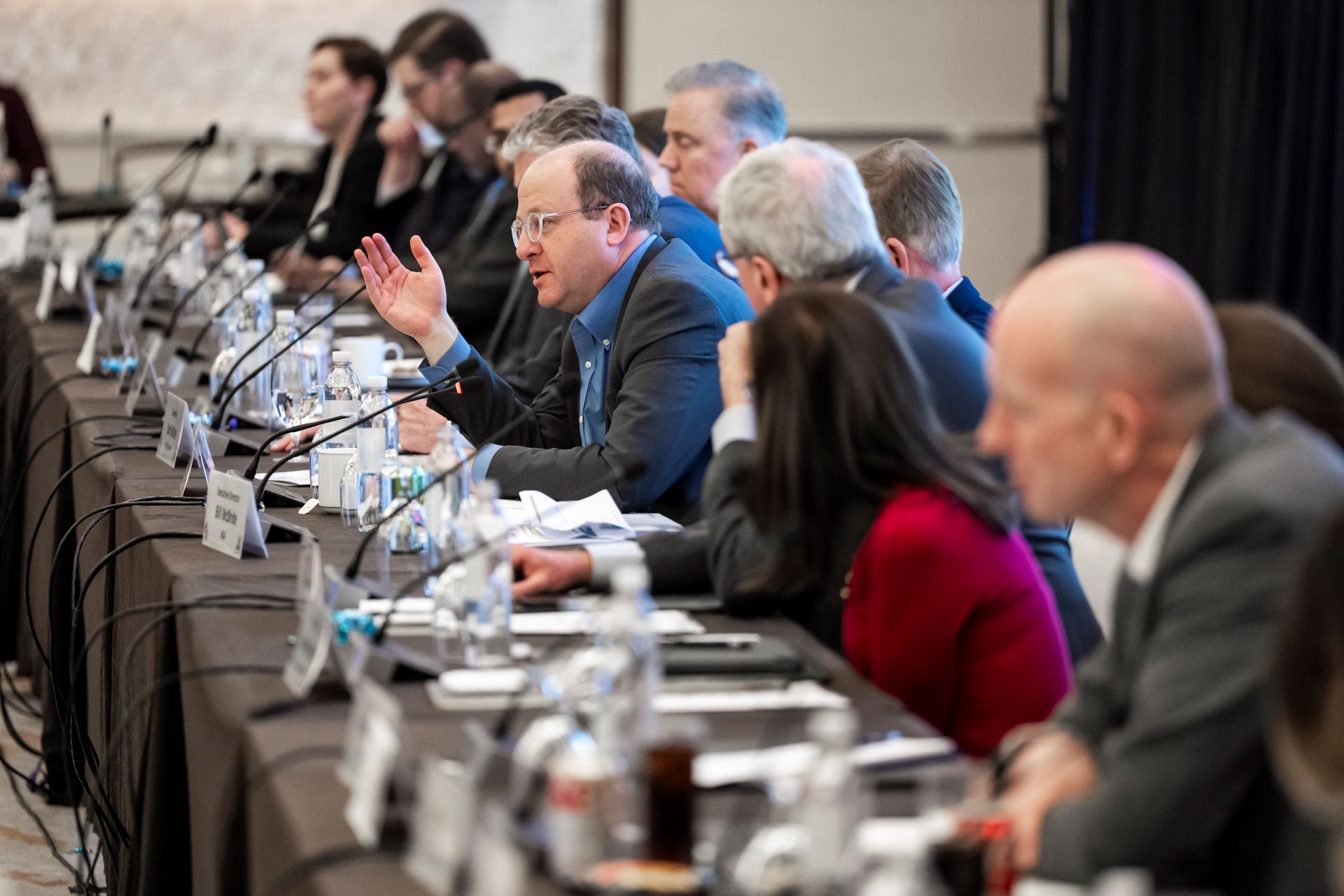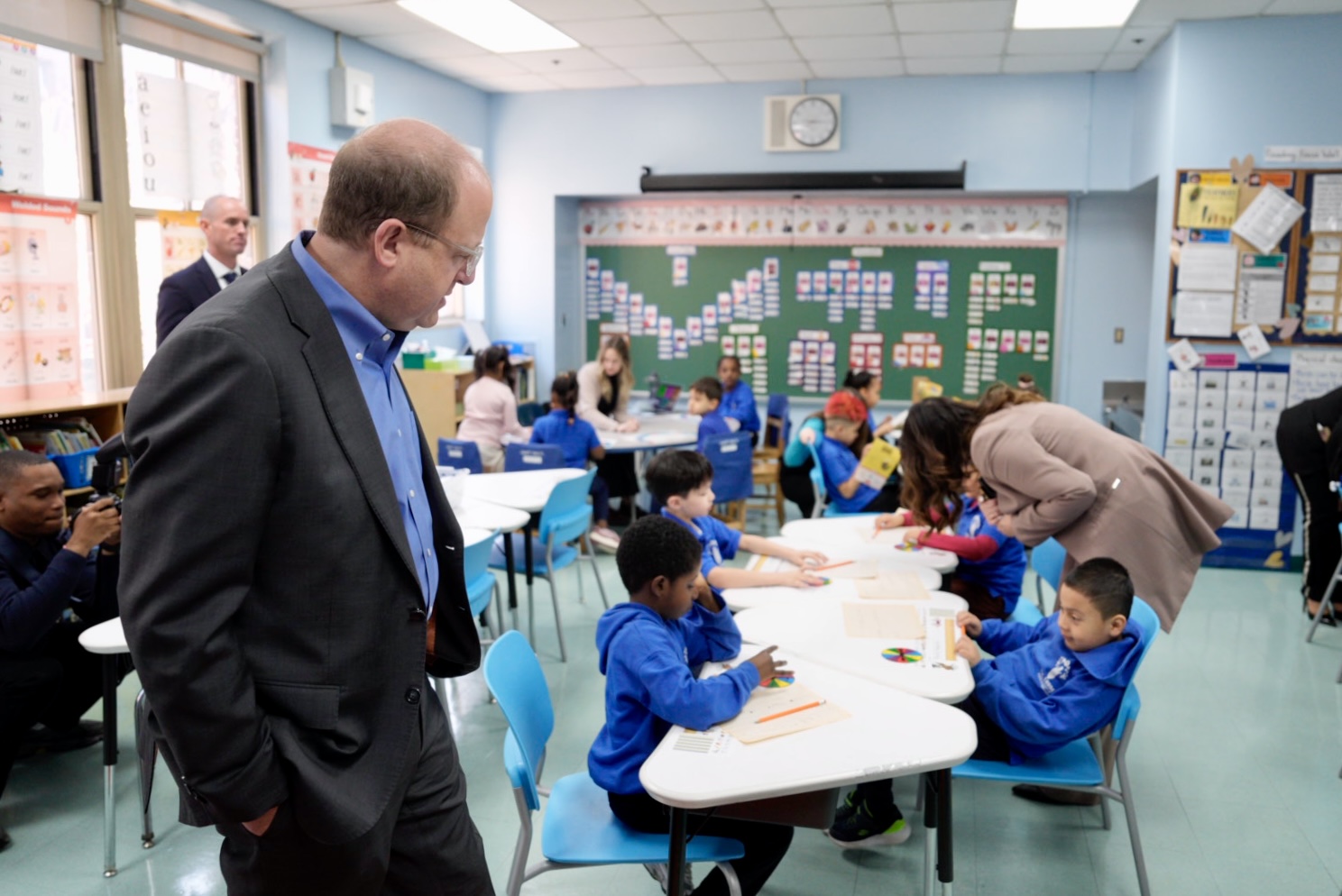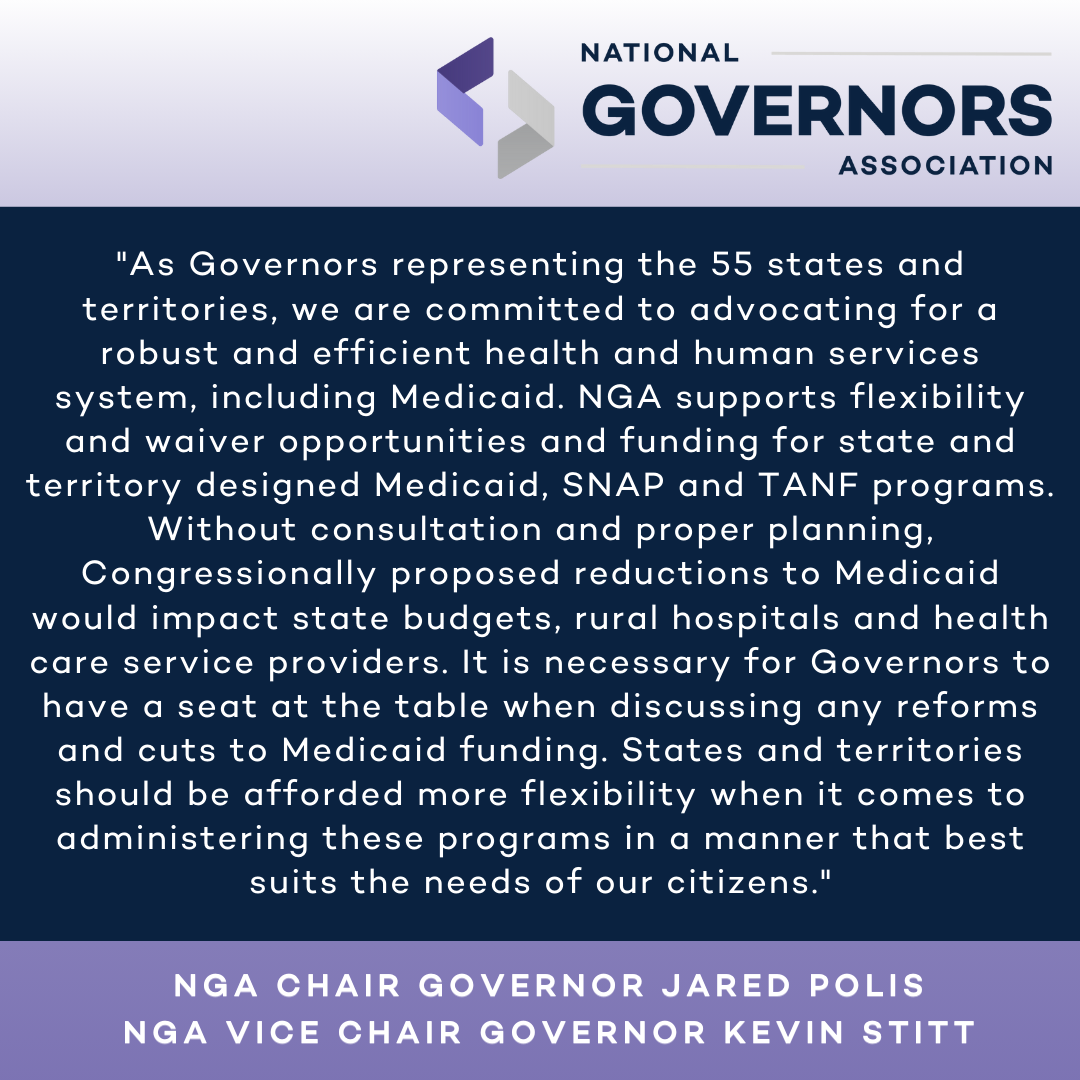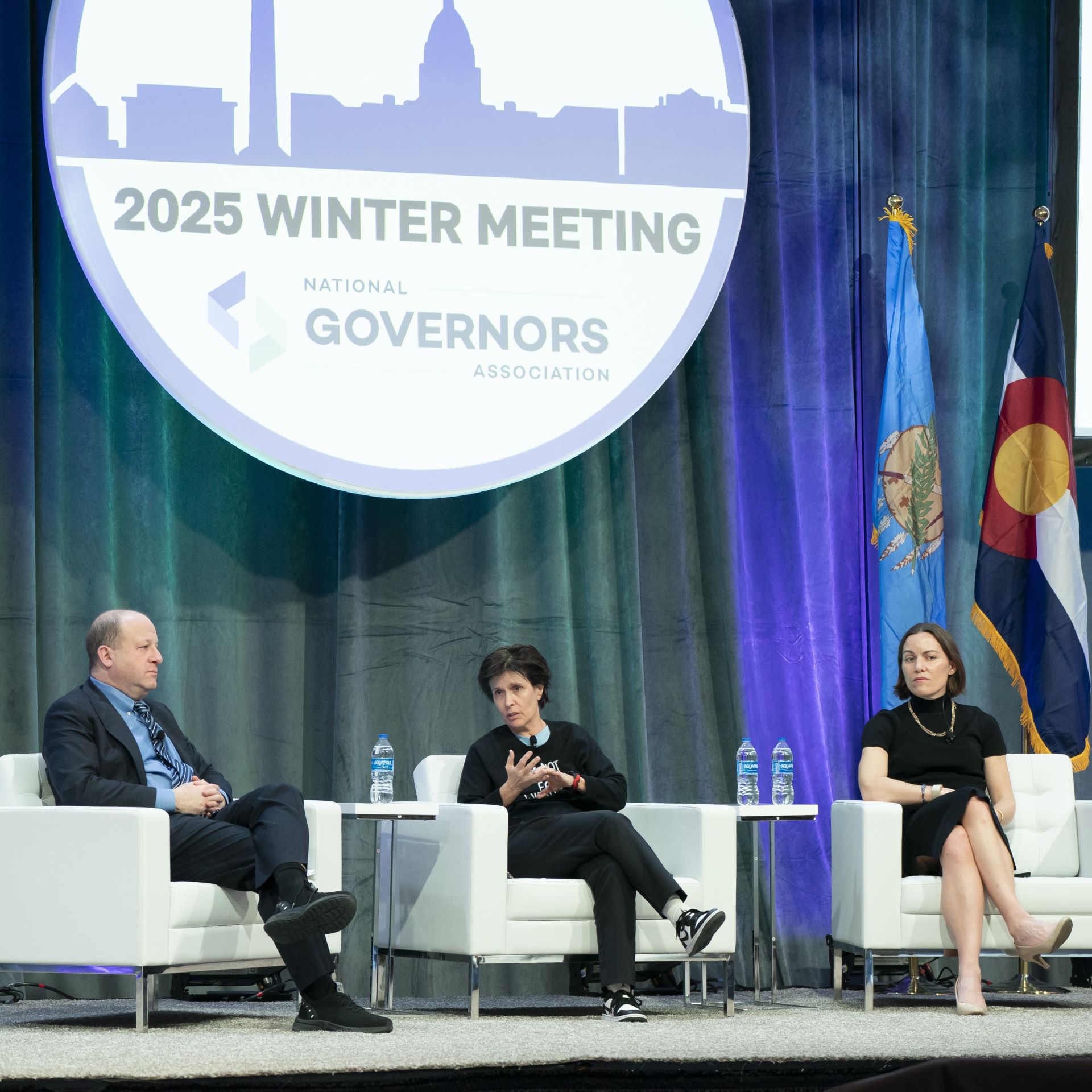NGA Chair Utah Governor Spencer Cox and Vice Chair Colorado Governor Jared Polis welcomed Montana Governor Greg Gianforte and Oklahoma Governor Kevin Stitt along with national experts and students to Westminster, Colorado, November 14, for the second in a series of bipartisan events to help address toxic polarization in America – the aim of Governor Cox’s 2023-24 NGA Chair’s Initiative: Disagree Better.
The convening centered on teaching youth about healthy conflict and fostering open debate, free expression and viewpoint diversity in higher education. The event included two panel discussions to unpack some of the work underway across the country to help improve political discourse, including programs designed for elementary, middle and high school students as well as for students enrolled in institutions of higher education.
Julia Dhar, Partner and Managing Director at Boston Consulting Group, moderated the first panel discussion that focused on “Teaching Youth about Healthy Conflict.” The panelists included:
- Norman Ornstein, Vice President, Matthew Harris Ornstein Memorial Foundation,
- Jeffrey Rosen, President & CEO, National Constitution Center and
- Kimberly Willingham, Executive Director, Boston Debate League.
Governor Cox opened the first panel discussion by underscoring that outreach to students of all ages is a core tenet of the Disagree Better initiative. Governor Cox shared, “We’ve developed a sense that one of the most effective things we can do to reduce partisan animosity is to target our efforts to young people even before they get to college. If we can ground our young people in civic education, and develop in them a sense of intellectual curiosity, humility, empathy and a willingness to see complexity, then we can gradually change the pervasive sense that people we disagree with are bad people or trying to destroy our country.”
Moderator Julia Dahr helped explore the premise Governor Cox detailed by asking the first panel’s participants to provide details about projects the panelists’ respective organizations are leading to help students of different ages and backgrounds learn skills to lead more thoughtful, engaged and productive discussions and debates about policy matters as well as issues that arise outside of the classroom such as resolving a disagreement on the playground. Dahr noted the importance of starting the work from a young age because “a huge body of research…says our attitudes towards difference [and] conflict are shaped very early on in our life.”
Kimberly Willingham, Executive Director of the Boston Debate League, discussed her work to prepare “young people for college, career and engagement with the world through debate-inspired learning” in classroom and afterschool settings. Willingham shared students K through 12 “need to learn the skills of debate. They need to learn how to engage in discourse, they need to learn how to listen. We always talk about critical thinking; critical listening is important as well, having a sense of empathy, a willingness to be curious about what someone else is thinking. We know that once students learn how to think in this way, how to argue in this way, they’re never the same.”
Jeffrey Rosen, President & CEO of the National Constitution Center, highlighted his organization’s work to help Americans of all ages gain a deeper understanding of the U.S. Constitution. The organization prides itself on bringing together legal scholars of differing beliefs and backgrounds who can lead thoughtful, respectful discussions that explore the U.S. Constitution so more Americans can learn about the text and gain an understanding of areas where scholars may hold different interpretations.
Rosen highlighted the consensus-building the National Constitution Center has achieved, noting that the country’s increasing political partisanship means “it’s urgently important not just to model debate, but to teach civics and history, [including] why the Framers embraced the ideals of the Declaration and the Constitution — in particular liberty, equality, democracy, separation of powers, Federalism, and the rule of law…These are still ideals that all sides embrace in principle although they disagree strongly about how to apply them in practice.”
Norman Ornstein shared he created the Matthew Harris Ornstein Memorial Foundation in honor of his late son Matthew. The organization provides a debate camp for public school children who live in the Washington, D.C. area. Ornstein shared the debate club helps students “put yourself inside the minds of those who believe something you may find is anathema to you, and in doing that it changes the way you think about the world.”
At the conclusion of the first panel, Governor Cox stressed:
“This is the issue of our day, ladies and gentlemen. I firmly believe that the very future of our country, the future of our Constitution depends on us getting this right and engaging. People misunderstand what Disagree Better means so often. And I have to keep repeating this. This is not about going along to get along. It’s not about [all of us having to] get in a room and agree on everything. This is not just another civility initiative. It is not that at all. It is about profound disagreement. It is about standing up to the extremes in our country, but doing it in the right way. Honestly, I ask people: what’s the other way? Give me the other way, and there is no other way. This is the only way we get it back together, and we save our country.“
Carol McNamara, Director of the Great Hearts Institute for Classical Education, moderated the second panel discussion, which focused on “Fostering Open Debate, Free Expression and Viewpoint Diversity in Higher Education.” The panelists included:
- Joshua Dunn, Executive Director, Institute of American Civics,
- Jacqueline Pfeffer Merrill, Director, Camus Free Expression Project, Bipartisan Policy Center and
- Caroline Mehl, Co-Founder & Executive Director, Constructive Dialogue Institute.
Moderator Carol McNamara opened the second panel discussion by emphasizing the need for Americans to learn how to disagree more constructively, particularly on college campuses. Quoting an essay from Andrew Sullivan, “We All Live on Campus Now,” McNamara remarked that all of us, student or not, are confronted with polarization in our everyday lives, which is why it is so important for campus leaders to equip their students with the right skills to engage in meaningful debate.
Josh Dunn, Executive Director with the Institute for American Civics, discussed his work with the Institute to model civil disagreement for students so that they can “develop the skills they need to go out into a pluralistic democracy and be more effective citizens, neighbors and friends.” Discussing the Institute’s programming goals to educate the public on strategies for healthy discourse, Dunn referenced “You Might Be Right,” a podcast housed at the Baker School and hosted by former Tennessee Democrat Governor Phil Bredesen and former Tennessee Republican Governor Bill Haslam as a model for engaging in constructive debate with people from opposite sides of the aisle.
Dunn also discussed the Institute’s forthcoming core class at the Baker School, “Visions of America,” which will give students the opportunity to debate fundamentally different viewpoints about what America should be, with the goal of encouraging civil and constructive disagreement while being exposed to different viewpoints in a safe environment.
Jacqueline Pfeffer Merrill, with the Bipartisan Policy Center, discussed her work as Director of the Campus Free Expression Project, which works to restore open discourse on college campuses in order to create independent thinkers and engaged citizens.
Discussing the responsibility of campus leaders, Merrill said “the core mission of higher education is to advance our understanding and to transmit that to the next generation. Higher Education has that charge to prepare our students for citizenship and civil leadership.”
Merrill emphasized, however, that all the challenges we are seeing today are not just the fault of higher education leaders. The increased polarization across the country in general, the way social media has changed the nature of political discourse and the way in which this generation of college-aged students has been socialized – in part due to the pandemic – are significant factors. She remarked, however, that institutes of higher learning can play an important role in reversing this trend by:
- Addressing young people’s doubts that diversity, equity and inclusion can go along with freedom of expression,
- Addressing the lack of viewpoint diversity on college campuses and
- Addressing the censorious minority.
Caroline Mehl discussed her work as the Co-Founder and Executive Director of the Constructive Dialogue Institute, which works to “translate the latest Behavioral Science research into educational tools that are evidence-based, practical and scalable in order to equip the next generation of Americans with the skills to think critically about difficult and nuanced topics, and to engage in dialogue across lines of difference.” She shared that they primarily work with college campuses to offer a holistic set of tools designed to bring about positive culture change related to dialogue and engagement around polarizing issues and topics.
Discussing strategies for toning down polarization on college campuses, Mehl discussed the responsibility of campus leaders to model what it looks like to have conversations around complex topics, especially in times of crisis, “This is not about crisis response, it’s about investing so that your campus is prepared when these crises hit. Build an environment that’s resilient to conflict so that when a crisis hits you can use it as a teaching moment rather than it being an opportunity for things to completely crumble.”
Expanding on this point, Mehl offered three suggestions all campus leaders should consider:
- Establish clear principles and policies that model what universities should look like,
- Embed these principles and practices across the curriculum, ensuring that students are consistently engaging with diverse ideas and diverse perspectives and
- Continue to provide students with opportunities to practice these skills throughout their college careers.
As Governor Cox has noted, regaining our ability to Disagree Better is the central issue of our time because until we do we won’t be able to address any of the pressing issues facing our nation. Bookmark the Disagree Better webpage to learn about future events, get research and resources on healthy conflict, and find inspiration and ways to take action.

